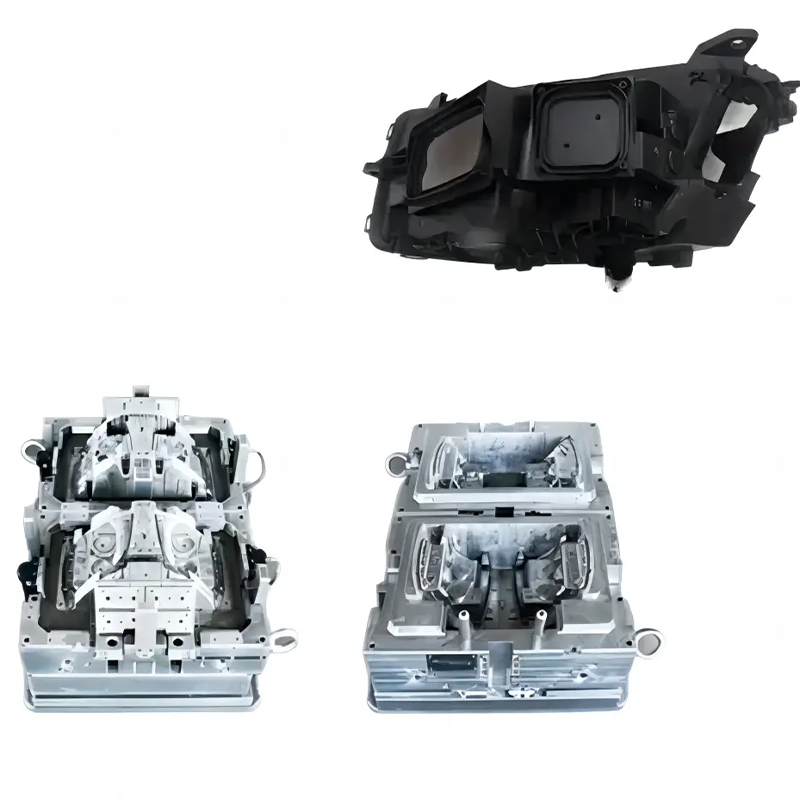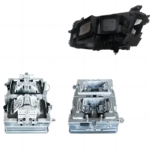Automobile Lamp Housing Mold
Mould Specifications
- Mould Name: Car Lamp Housing Mould
- Mould Material: 2738
- Mould Base: P20
- Injection System: Hot Runner
- Estimated Size: 1652 × 1096 × 1370 mm
- Mould Weight: 14.5T
- Mould Lifetime: Over 500,000 shots
Our OEM Car Headlight Base Mould for Automobile Lamp Housing is designed with precision and manufactured from high-quality materials like 2738 and P20 steel. With an advanced hot runner injection system, this mould ensures efficient production and a long lifecycle of over 500,000 shots. Rigorous quality control measures, from raw material inspection to final product verification, guarantee a product that meets the highest standards of durability and performance. This attention to detail ensures our moulds help streamline production processes and deliver consistent, high-quality automotive lamp housings.
Steps for Effective Quality Control
- Thorough Raw Material Inspections:
The quality of raw materials directly impacts the final product’s quality. Inspect and test all raw materials to ensure they meet the required standards, guaranteeing a high-quality finished product.
- Adherence to Standard Procedures and Protocols:
Consistently follow standard procedures and protocols throughout the production process. This consistency ensures each production step is executed correctly, facilitating troubleshooting and problem-solving when issues arise.
- Employee Training and Empowerment:
Provide comprehensive training and support to employees involved in the production process. Empower them to identify and rectify quality issues and take corrective actions to prevent future problems.
- Monitoring the Production Process:
Continuously monitor the product at each production stage to ensure it conforms to specifications and quality standards. Early detection and correction of defects reduce waste and increase production efficiency.
- Final Inspections:
Conduct a thorough final inspection of the finished product before shipment to ensure it is free from defects and meets customer requirements. Any defects found during this inspection should be corrected prior to shipping.
Detailed Quality Control Measures
Material Inspection:
Regularly inspect the raw materials to ensure they meet specified quality standards. Using substandard materials can lead to defects and inconsistencies in the final product.
In-Process Monitoring:
Monitor the manufacturing process closely, particularly the injection system and molded parts. Utilize advanced technology and tools to detect deviations and implement immediate corrective measures.
Employee Involvement:
Involve trained employees in quality checks at various stages of production. Their hands-on experience and insights are invaluable in maintaining high-quality standards.
Final Product Verification:
Perform a detailed inspection of the final mould to verify it meets all design specifications and customer requirements. Ensure the product is free from any defects and is ready for use.
Feedback Loop:
Create a feedback loop to continuously improve the quality control process. Collect data on defects and issues, analyze them, and implement improvements in the production process.


